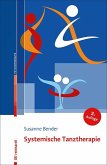This book examines patterns of interpersonal coordination in a treatment group. Findings reported herein were obtained from videorecording and analysis of twelve one-hour sessions. A new construct was introduced to the study of group behaviour. Interpersonal coordination was imported to this inquiry as a means of examining changing patterns of nonverbal behaviour in the treatment group under study. Interpersonal coordination was defined as comprising two behavioural elements, behavioural congruence and interpersonal synchrony. Bivariate cross-correlational time series analysis and hierarchical cluster analysis are employed to examine the changing patterns of interpersonal relationships during each session. Bivariate cross- correlational time series analysis was also utilized to examine the relationship between the behavioural elements of interpersonal coordination and the changing group properties of empathy and cohesion. The influence of significant events and interpersonal relationships were explored and compared to significant relationships found in interpersonal coordination between group members.
Bitte wählen Sie Ihr Anliegen aus.
Rechnungen
Retourenschein anfordern
Bestellstatus
Storno








